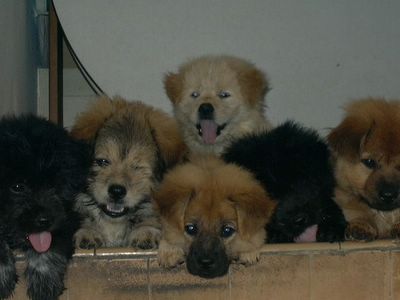[飲者按:近期我一直跟兩位美國老朋友討論有關總統大選等問題,11月1日(投票前一天)再收到其中一位的電郵,埋身反省當地基督徒的選舉態度,裡面提到為甚麼他多年支持共和黨,但今次卻為民主黨克里作個人拉票,水準高超唔係野小!正所謂人點燈不是放在斗底下,現蒙原作者允許在此登載,公諸友好。當然,為保護當事人,人名教會名全部略去。]
At our church yesterday (Sunday), part of the sermon touched on the election. The intention was good in that the church is trying to encourage brothers and sisters to be more concerned about politics and to vote. The pastors/leaders are careful to stay neutral. They are well aware of the consequence of siding with either side, because in U.S., non-profit organizations are not allowed to push political agenda. Otherwise they will lose their tax free status.
But as evangelical Christian, our pastor still feel the obligation (their pastoral duty) to say that"moral issues" are (should be) the most important issues when considering who to vote for. Hint hint...abortion, homosexual issues, and hint hint, vote for Bush.
Attached to the weekly bulletin insert that was distributed to everyone at church were lists of political issues collected from CNN.com, AOL.com, CCN, etc. And the list shows where the candidates stand on each issue. The idea is that we can go through the list of issues, see where we stand on each issue. And at the end, get a count on how many issues we agree with each candidate. So if we agree on 20 out of 30 issues with Bush and only 10 out of 30 issues with Kerry, then vote for Bush.
And hint hint... as evangelical Christians we should place more weight on "moral issues".
After the sermon, I expressed my concern to a fewpeople, including a newly elected "elder" of our church. My concern is that this is an overly simplistic approach to deciding who to vote for. For one thing, Bush can say he is pro-life, but what has he done in the four years he has been president on this "moral issue"?
When asked point-blank during one of the debates whether they will appoint supreme court justices to over-turn abortion right, Kerry clearly said he will appoint justices to uphold the U.S. constitution, not on specific issues (hence, "no"). But Bush basically just danced around and gave his standard"answered-but-no-answer" type of response.
And Bush claims he is against same-sex marriage. But the Republican president, Republican-controlled House and Senate couldn't even get serious discussion going on constitutional ban on same-sex marriage. What has Bush done on this moral issue?
During the RNC (Republican National Convention), Bush campaign was so concern of appearing "too much to the right", they didn't invite conservative Christian leaders to speak or to the RNC itself. These poor Christian supporters of Bush had to gather and pray for Bush privately in a nearby hotel room, away from the cameras and the public.
Is this the "moral" candidate that we should support? This is not as simple as checking off on a list of issues.
While I am concern about moral issues as well, I am more concern, in this election, about the fundamental differences in "world view" of each candidate. I feel that Bush and his gang of ultra-rightwing, and self-righteous advisors are extremely dangerous, not just to the U.S., but to the world.
I heard on the radio the other day that someone said Bush should never have been allowed into the White House and should never be allowed back into the White House ever again. I feel maybe it is more important that ultra-rightwing folks like Donald Rumsfeld(defence secretary)and Paul Wolfowitz (deputy defencesecretary) should never have been allowed into thePentagon.
Knowing that Massachusetts is not a swing state andthat Massachusetts is very much knocked up in Kerry's camp, I spent some time today "sharing my thoughts"with some colleagues at the office who are NewHampshire residents. Hoping to win over some undecided. New Hampshire, as you know, is still in a tight race. Hope to do something, in whatever small way I could, to help Kerry's campaign :-)
I started forming my political views during the 80's and I was very Republican. I thought Reagan was great, and his supply-side economy saved the U.S. economy from the oil crisis. I hate big government and as a young Christian I sided with the conservatives' moral stands. But now that I have my very first opportunity to vote as a new U.S. citizen, I am voting against Bush. Not that Kerry is my ideal candidate. I am anti-Bush.
Just one more day... I am glad it will be all over soon. It has just been too much anxiety.
As always, wish you are here to chat with in person instead of writing emails.
(written by a good friend on 1 November 2004; posted with permission of author who prefers to remain anonymous)







